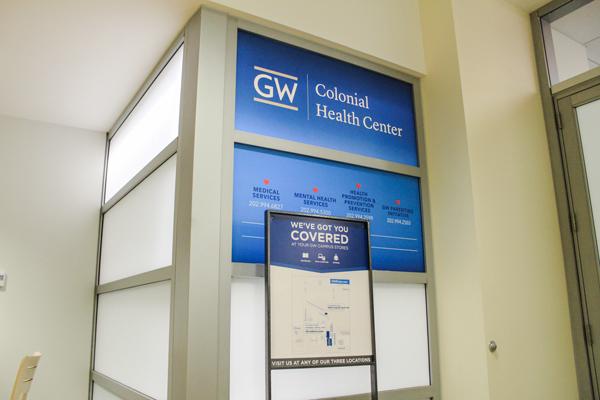More than a week after the U.S. presidential election, Mental Health Services leaders created daily walk-in hours for students to discuss election-related reactions and concerns.
MHS released a statement on Nov. 18 that eight counselors in the center would be available at specific times Mondays through Fridays for walk-in hours for students who were interested in discussing the election’s results. Students across campus have expressed anxiety over the election’s results, and experts say the special services could keep students from being permanently stressed.
Students on campus held several events in the days after the election, including a walk-out with more than 400 participants. Students, many of whom were members of marginalized or minority communities, said President-elect Donald Trump’s unexpected win left them concerned about their futures.
Gillian Berry, the interim director of MHS, said in an email that the center is committed to the “academic, personal, cultural and collective experiences of students” and has offered a variety of resources for previous world and domestic events that affected the community. Berry said MHS provides walk-in hours to students on a regular basis. MHS offers daily walk-in hours from 10 a.m. to 3 p.m., according to the center’s website, and those hours differ from the election walk-in hours.
“We are aware of the varying reactions students may have in response to the recent presidential election and have developed daily walk-in hours for students who would specifically like to discuss election related concerns,” Berry said.
On Nov. 9, University spokeswoman Kurie Fitzgerald said in an email that MHS was not offering anything in addition to their normal services. MHS released the statement about the newly developed office hours more than a week later.
Berry declined to comment on when MHS decided to start offering the services, how this specific counseling is being funded or supported, how counselors balance their regular duties with the additional walk-in hours, how long they will continue to offer these services and what other events they will offer specialized counselors for in the future.
Some of the clinicians who are helping with election counseling include some of the 10 new staff members that were hired since this past spring, including clinicians who specialize in working with minority and veteran students. These hires came after turnover at the highest level in MHS, when Silvio Weisner, the former director of MHS, stepped down suddenly last September after officials found he was not licensed to practice psychology in D.C. More than a year later, the position still has not been filled.
Steven Sherry, a lecturer in the department of social work at California State University, Northridge, said universities should offer specific counselors and services to help students and faculty members process their emotions after a specific event.
“The faster people are able to come together and process, the better the chances of decreasing symptoms of a traumatic event,” Sherry said.
This presidential election was more traumatizing than previous races have been, and the divisive nature of this election has increased awareness of hate toward minority groups and discrimination, Sherry said.
“Students and faculty have reported that the country is moving in a bad direction and again fears of mass deportation are present,” Sherry said. “We have many undocumented students who are living in fear about being deported and not being able to complete their education.”
GW does not track the number of undocumented students who attend the University but offers resources to those students when applying for financial aid.
Sherry said he believes there has been an increase in the number of students seeking services at counseling centers. Sherry said in difficult times, communities can come together, organize and empower all generations to become more involved and seek help when needed.
“This is not just due to the current political climate and election results, but due to faculty educating students about the service available to them, and encouraging students to seek support if they are struggling with the results of the election,” Sherry said.
Darcy Gruttadaro, the director of the National Alliance of Mental Illness’ Child and Adolescent Center, said advertising to discuss specific high stress topics can help to break the stigma of coming to use the services.
Gruttadaro said using social media outlets, putting information on university websites and asking professors to spread the word helps the message reach more students.
MHS did not advertise for the special office hours on social media and only released the statement on their website.
One in five students experience a mental health condition, and stress can make it worse and work as a contributing factor for people developing a condition, Gruttadaro said. She said that for some, this election has induced more stress than usual.
“The more we can make it visible and help students understand how to access care, I think the more likely students will be to seek care,” Gruttadaro said. “Some of us develop mental health conditions that really need help, and so making information about services accessible is really helpful.”







